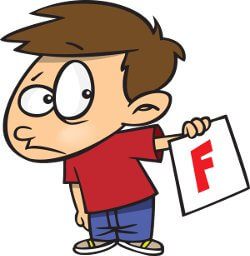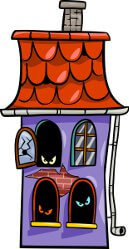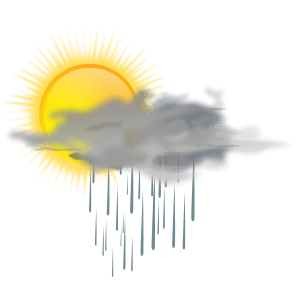Irony
Irony is a type of figurative language in the English language.
Click Here for Step-by-Step Rules, Stories and Exercises to Practice All English Tenses
Irony can be difficult to understand because it is often defined incorrectly. Authors use irony to make their writing more interesting. Television and movie producers use irony to make their shows interesting and funny.
Let’s look at a definition of irony.
Click Here to Get the English Short Stories Book and Workbook
Definition:
Irony is when someone says or does something, but means another thing or intends for something else to happen.
That can be a little difficult to understand, can't it?
Let’s make it easier. There are two parts to this definition.
Irony is
1. when someone says something but means the exact opposite
2. when something happens that is the exact opposite of what you expected.
It is easiest to understand irony when you look at types of irony separately. There are three types of irony: verbal, dramatic, and situational.
Verbal Irony
Verbal irony is the most common type of irony. Verbal irony is when a character or person says something, but means the exact opposite.
This type of irony is used to create humor, make a point, or be mean. Verbal irony can also be called sarcasm if the speaker is making fun of somebody. Sarcasm is very popular in everyday language.

Example:
Nick just got an F on his test. Maria looks at Nick and says, "Good job! You must have studied hard."
Does Maria really mean "good job"? No! Maria is using verbal irony to be sarcastic.
Watch this video from Ted-Ed to learn more about verbal irony.
Dramatic Irony
Dramatic Irony is a type of irony often found in humorous and suspenseful literature or movies. Dramatic irony is when the audience is aware of something that the character is not.

Let’s look at one example.
While watching a suspenseful movie, the audience sees the bad guy enter a house, turn off the electricity, and hide in a dark room. Then, the main character walks into the dark house alone. The character does not know that the bad guy is in the room, but the audience does. This creates suspense or drama because the audience knows something that the character does not.
This is one example of dramatic irony. It is ironic because the audience knows more than the character.
Watch this great video from Ted-Ed to see more examples of dramatic irony.
Situational Irony
The final type of irony is situational irony. Situational irony is when you expect one thing to happen but get the exact opposite.
Watch this video from Ted-Ed to learn about situational irony.
Situational
irony vs bad luck
Situational irony can sometimes be the most difficult to identify. It
is often confused with bad luck.Bad luck is just something unpleasant that happens. Situational irony is when the exact opposite of what is supposed to happen, happens.
Bad luck: A car is being towed.
Situational irony: A tow truck is being towed.
Bad luck: A building burns down.

Situational irony: The firehouse burns down.
Bad luck: It rains on your wedding day.
Situational irony: You scheduled an outdoor wedding in July because it hasn't rained in July for 10 years. Unfortunately, it still rains on your wedding day.
Bad luck: A man falls in a swimming pool.
Situational irony: A man takes a step to the side in order to avoid walking in a puddle. He falls in the swimming pool.
Situational irony in literature
One great example of situational irony can be found in O. Henry's: The Gift of the Magi.Summary:
Della and Jim are very poor. They do not own many things. The two things that are the most important to them are Della’s beautiful, long hair and Jim’s gold watch.
It is Christmas time. Della wants to buy a gift for Jim. She decides to sacrifice her hair to buy Jim a Christmas gift. She cuts off her hair and sells it for money.

Jim wants to buy a gift for Della. He decides to sacrifice his gold watch to buy Della a Christmas gift. He sells his watch for money.
Della and Jim exchange gifts. Della gives Jim a gold chain for his watch, but Jim sold his watch to buy Della’s gift.
Jim bought Della a comb for her hair, but Della cut and sold her hair to buy a chain for Jim’s watch.
The events of this story are ironic. Jim thinks Della will love her comb because she has beautiful hair. But Della cut her hair to buy Jim a gift. Della thinks Jim will love the gold chain because he can put it on his watch. But Jim sold his watch to buy Dell a gift.
The ending of the story is the opposite of what was expected. That is the definition of situational irony.
Review
Irony = When someone says or does something, but means another things or intends for something else to happen.Verbal irony = Someone says something but means the opposite.
Dramatic irony = The audience is aware of something that the characters are not aware of.
Situational irony = Something happens that is the exact opposite of what was expected to happen.
This was an overview of irony. Now that you understand, it is time to practice! Get our ESL Books.
Get Updates, Special Offers, and English Resources
Download your FREE GIFT (the first two chapters of
English Short Stories Book and Workbook)
as soon as you join!

By submitting your email, you consent to receiving updates and newsletters from us and to the sharing of your personal data with third parties for the purposes of sending you communications. We will not spam you. You can unsubscribe at any time. For more information, please see our privacy policy.





